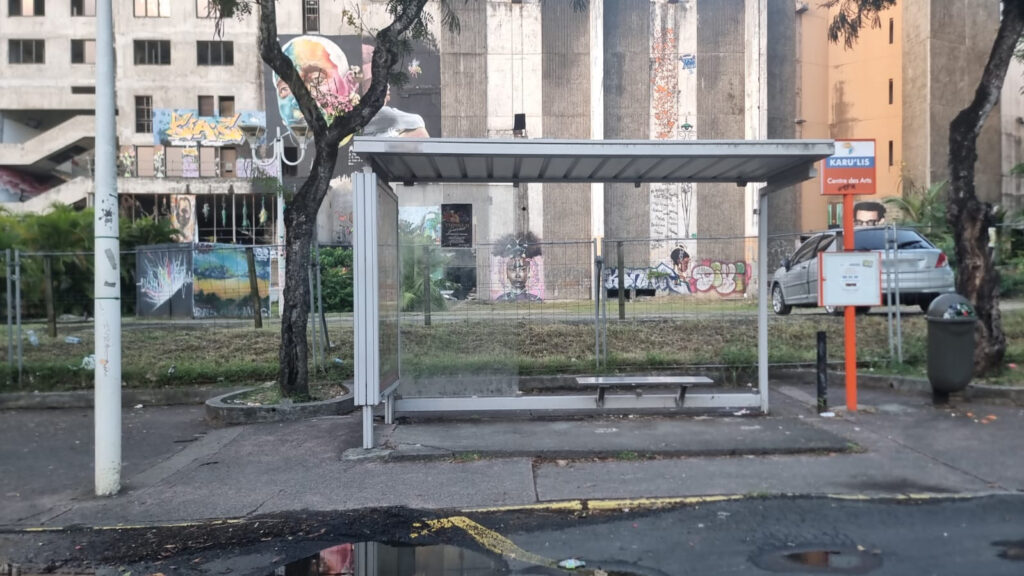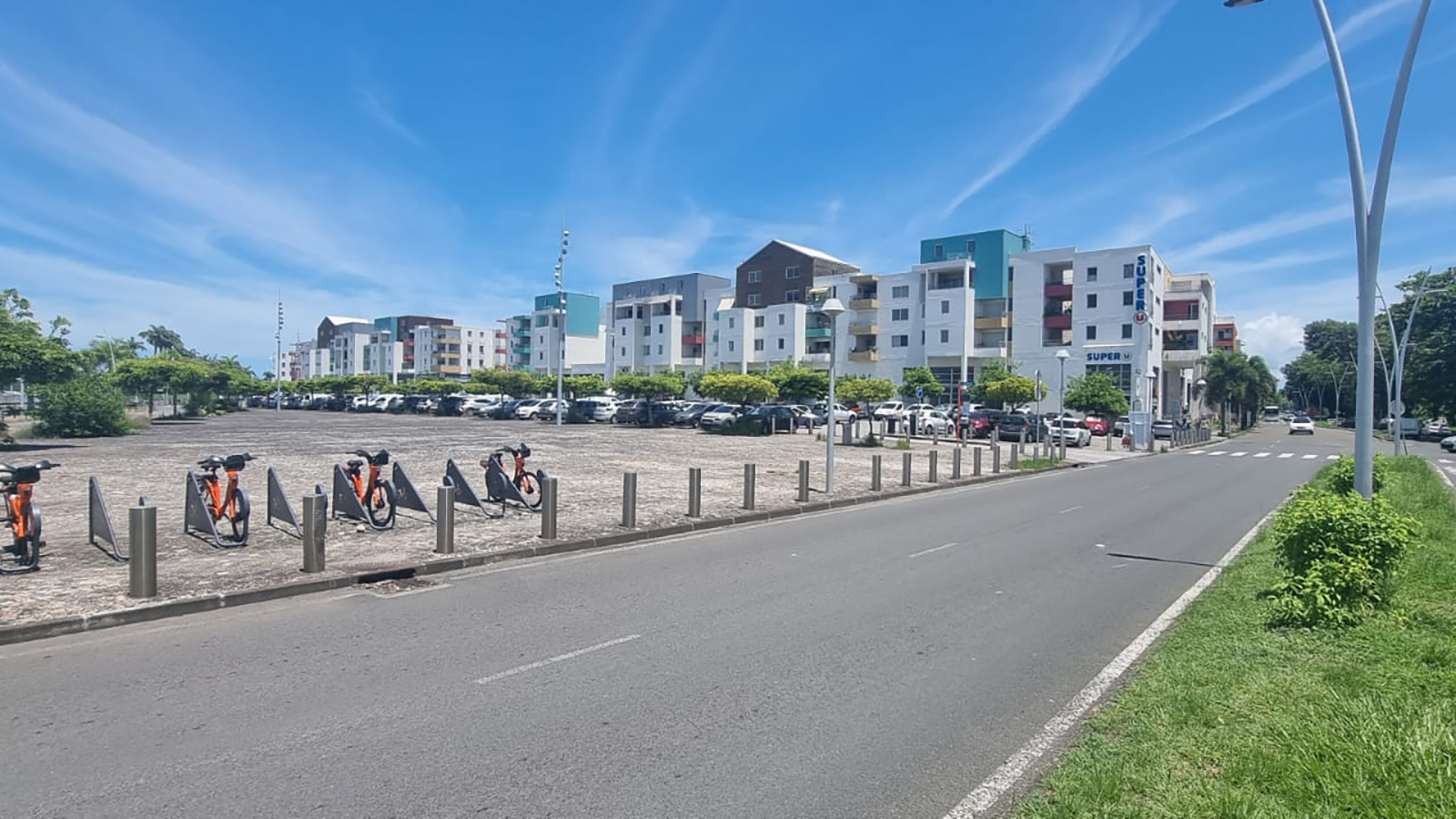Connecting the present, safeguarding the city's future
Facing growing urban and climatic challenges in tropical territories, SPOCONLINE ADS is radically transforming traditional infrastructures into connected, autonomous, and sustainable urban spaces.
This case study details the successful deployment of the “ÉLITE” connected bus shelters in Pointe-à-Pitre, showcasing technical expertise, innovation, local collaboration, and a strong societal impact.
Context and challenges
In Pointe-à-Pitre, as in many tropical cities, transport infrastructures showed critical weaknesses.
These issues, clearly voiced by residents during the 2023 public surveys conducted by the city and the SMTPCM, called for an innovative, sustainable, and contextually adapted solution. Main challenges identified:
- Accelerated deterioration and corrosion of existing equipment
- Lack of real-time passenger information
- Perceived insecurity at night due to poor lighting
- Insufficient comfort against harsh climatic conditions
- Frequent flooding around sidewalks and waiting areas




The Innovative ELITE Solution
A solution with optimized dimensions: 2.70 x 4.20 x 1.80 meters, built with hot-dip galvanized steel (90 microns), anti-corrosion epoxy-polyurethane coating (white and blue), and tempered laminated glass, UV-protected, scratch-resistant, and vandal-proof.
Autonomous Energy System
1600W solar energy from 4 monocrystalline panels (daily capacity: 8–10 kWh)
10 kWh LiFePO4 batteries, ensuring at least 48 hours of energy autonomy even in difficult weather conditions
Advanced Connectivity and Interactivity
Professional LCD screens (2×65-inch and 1×24-inch internal).
Raspberry Pi 5 for synchronized video/audio management.
LoRaWAN technology and EcoFlow DELTA Pro (optimized energy management).
Integrated sensors: seismic, weather, presence/motion, light, and specialized flood-level sensors for enhanced safety, dynamic information, and optimized energy management.
Smart Centralized Management System
SPOC-Manager software platform (web & mobile dashboard).
Real-time monitoring, embedded AI for energy optimization and predictive maintenance.
Immediate flood alerts for rapid response by local authorities.
Compliance with the Highest Certification Standards
Electrical safety compliant with IEC 61439-2, IP68 waterproof rating.
Anti-corrosion standard ISO 12944 C5-M, cyclone resistance (NV65 Caribbean standard).
“French Tech” label currently in the process of being obtained.
A collaborative methodology
Local stakeholders were engaged throughout the project, including: City of Pointe-à-Pitre, Cap Excellence Urban Community, Guadeloupe Region, operators SMTPC and Karu’lis, and several local companies.
The project followed a structured process: feasibility studies and validation, authorization processes, cyclone-standard site preparation, local technical installation, testing and official inauguration.
A dedicated local training program was also implemented for technicians, municipal staff, and operators using specialized tools.
Expected results:
- +30% increase in passenger usage at equipped stops within just two weeks
- Strong user satisfaction regarding safety, comfort, and real-time information
- Technical issue rate below 2%, demonstrating the model’s immediate reliability
A vision for international and innovative expansion
At SPOCONLINE ADS, we are redefining urban mobility in tropical territories.
Our mission: leveraging innovation to create connected, autonomous, and secure public spaces that truly enhance daily life and foster sustainable economic development.
With our “ÉLITE” connected bus shelters, every tropical city can become a model of smart, resilient, and citizen-focused connectivity.
A bold strategy for International growth
SPOCONLINE ADS is aiming for rapid expansion across: the Caribbean (Martinique, Barbados, Jamaica), Latin America (French Guiana, Colombia) and the Indian Ocean (Ivory Coast, Senegal, Mauritius, Réunion).
Future innovations to watch
Our next advancements include: Behavioral AI for real-time optimization, predictive Weather Sensors, augmented Reality for interactive experiences and new citizen services like contactless payments, electric charging stations, smart safety systems.
Proven scalability
Our solutions are easily deployable internationally thanks to optimized logistics and centralized management via SPOC-Manager, creating opportunities for local skilled job creation.
New strategic uses
Our connected bus shelters are also evolving into citizen service hubs, secure micro-logistics relay points, real-time multimodal reservation hubs, educational spaces focused on environmental awareness.
